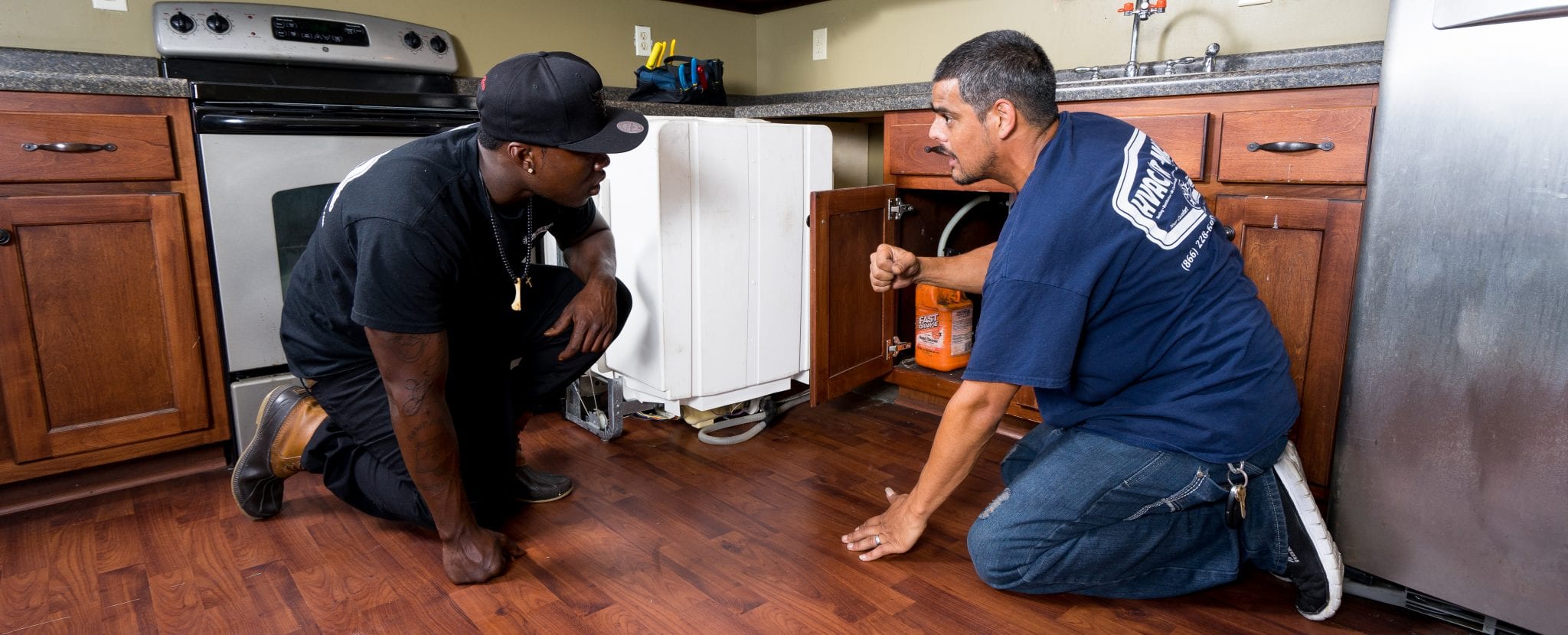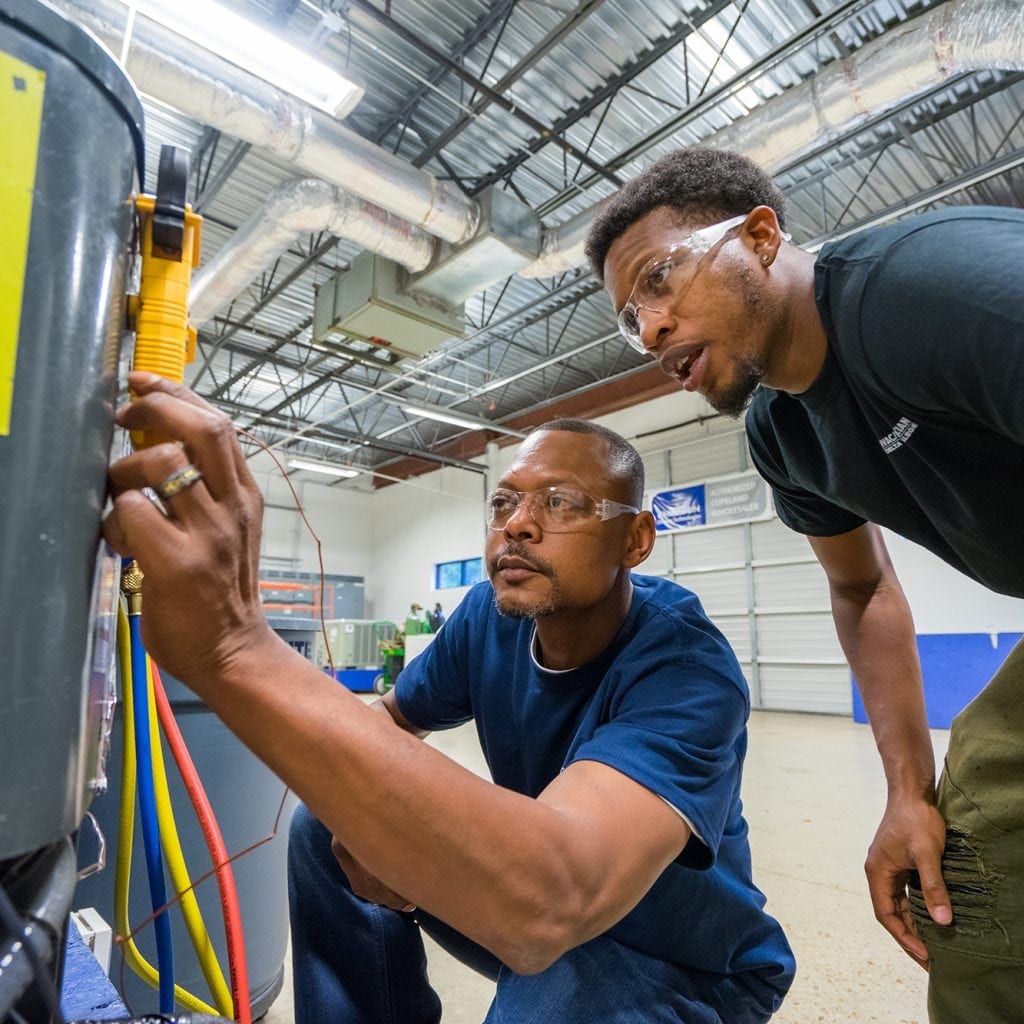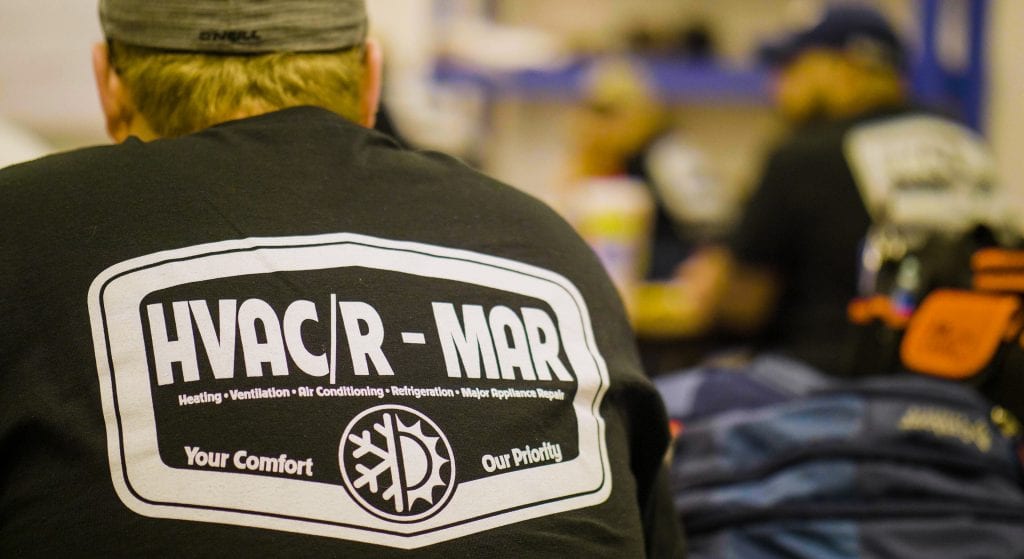
HVAC technicians are typically required to take several steps to ensure they have the right skills and knowledge for the job. This is due to the increasing complexity of the equipment they work on, federal laws governing the refrigerants they often handle, and the importance of ensuring customer satisfaction year-round.
HVAC Technician Job Description
Learn more about what an HVAC technician does.
Steps to Become an HVAC Technician
From training to certification to licensing, becoming an HVAC technician can take several steps. Federal, state, or local government agencies require some of the steps and employers prefer others. Take a closer look at each one in the chart below. You can also check out our guide on understanding HVAC certifications.
| Steps | Description | What to Expect | Required or Preferred |
| Step 1 | High School Diploma or GED | Courses in Vocational Education, Math & Physics Can Helpful | Usually Required |
| Step 2 | HVAC Training at a Vocational School or Community College | Training in Air Conditioning, Gas Heating, Electric Heat & Heat Pumps, Basic Electricity, Indoor Air Quality & Employment & Certification Readiness | Preferred |
| Step 3 | EPA Section 608 Technician Certification | Four Types of Certification (Each Requires a Test)
Type 1: Servicing Small Appliances Type 2: Servicing/Disposing of High- or Very High-Pressure Appliances Type 3: Servicing/Disposing of Low-Pressure Appliances Universal: Servicing All Types of Equipment |
Required for Working with Refrigerants |
| Step 4 | On-the-Job Training | Example Tasks:
Entry-Level: Cleaning Furnaces & Insulating Refrigerant Lines Mid-Level: Checking Electrical Circuits & Soldering Pipes |
Typically Required |
| Step 5 | Specialized Industry Certifications | North American Technical Excellence (NATE)
HVAC Excellence Refrigeration Services Engineers Society (RSES) Others |
Often Preferred & Can Lead to Career Advancement |
How to Become HVAC Certified
Since many types of HVAC systems use refrigerants, obtaining EPA Section 608 Technician Certification is a common step for many people to becoming an HVAC technician. The EPA offers four types of certification for the various kinds of equipment techs work on. Technicians must take and pass an exam with 25 multiple choice questions for each type of certification.
| Types of EPA Certification | Type I | Type II | Type III | Universal |
| Equipment Covered | Domestic Refrigerators, Air Conditioners & Other Kinds of Small Appliances | Heat Pumps, Refrigeration Systems, Residential A/C Units & Other Kinds of High to Very High-Pressure Appliances | Chillers & Other Types of Low-Pressure Appliances | All of the Equipment Covered by Types I, II & III |
Studying is a common step of any test-taking process. Many people also prepare by taking an HVAC training program. Some vocational schools require their HVAC program students to take and pass EPA Section 608 Core certification tests. This is the case at Midwest Technical Institute (MTI), which requires its students to pass the EPA Core Type I and Type II certification exams.
MTI offers a nine-month HVAC/R-MAR Technician Program at its campuses in Springfield, East Peoria, and Moline, Illinois, where students learn the HVAC/R and major appliance repair trade. An HVAC program is also available at the school’s campus in Springfield, Missouri.
Specialized Industry Certifications
Becoming an HVAC Technician
It can take multiple steps to become an HVAC technician, but the effort could be well worth it. The Bureau of Labor Statistics (BLS) predicts much faster than average job growth for HVAC techs through 2026. These professionals may also find satisfaction in providing comfortable, healthy indoor climates to their customers.If you have questions about how to become an HVAC technician, contact the Admissions Representatives at MTI.
Sources
-
https://www.bls.gov/ooh/installation-maintenance-and-repair/heating-air-conditioning-and-refrigeration-mechanics-and-installers.htm#tab-4https://www.bls.gov/ooh/installation-maintenance-and-repair/heating-air-conditioning-and-refrigeration-mechanics-and-installers.htm#tab-1https://www.midwesttech.edu/programs/hvac-refrigeration-training/https://www.epa.gov/section608/section-608-technician-certification-0
https://www.bls.gov/ooh/installation-maintenance-and-repair/heating-air-conditioning-and-refrigeration-mechanics-and-installers.htm#tab-1


